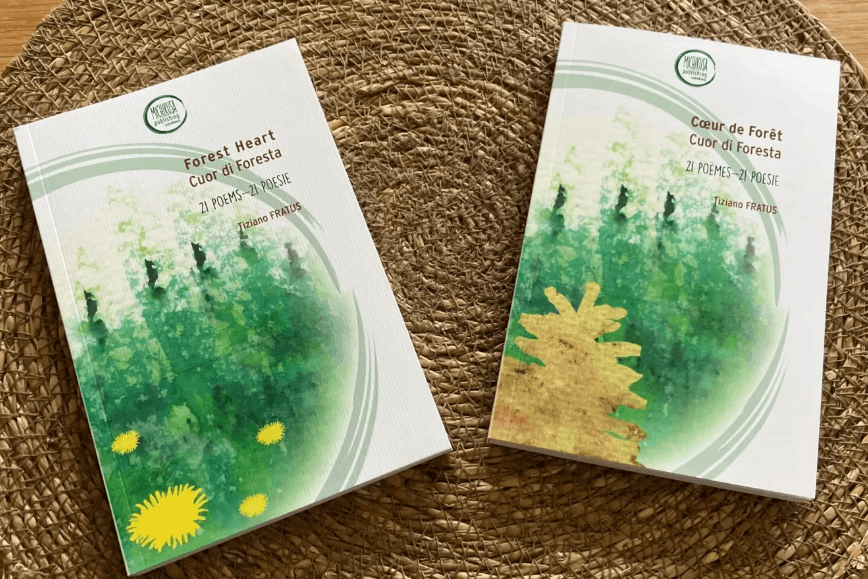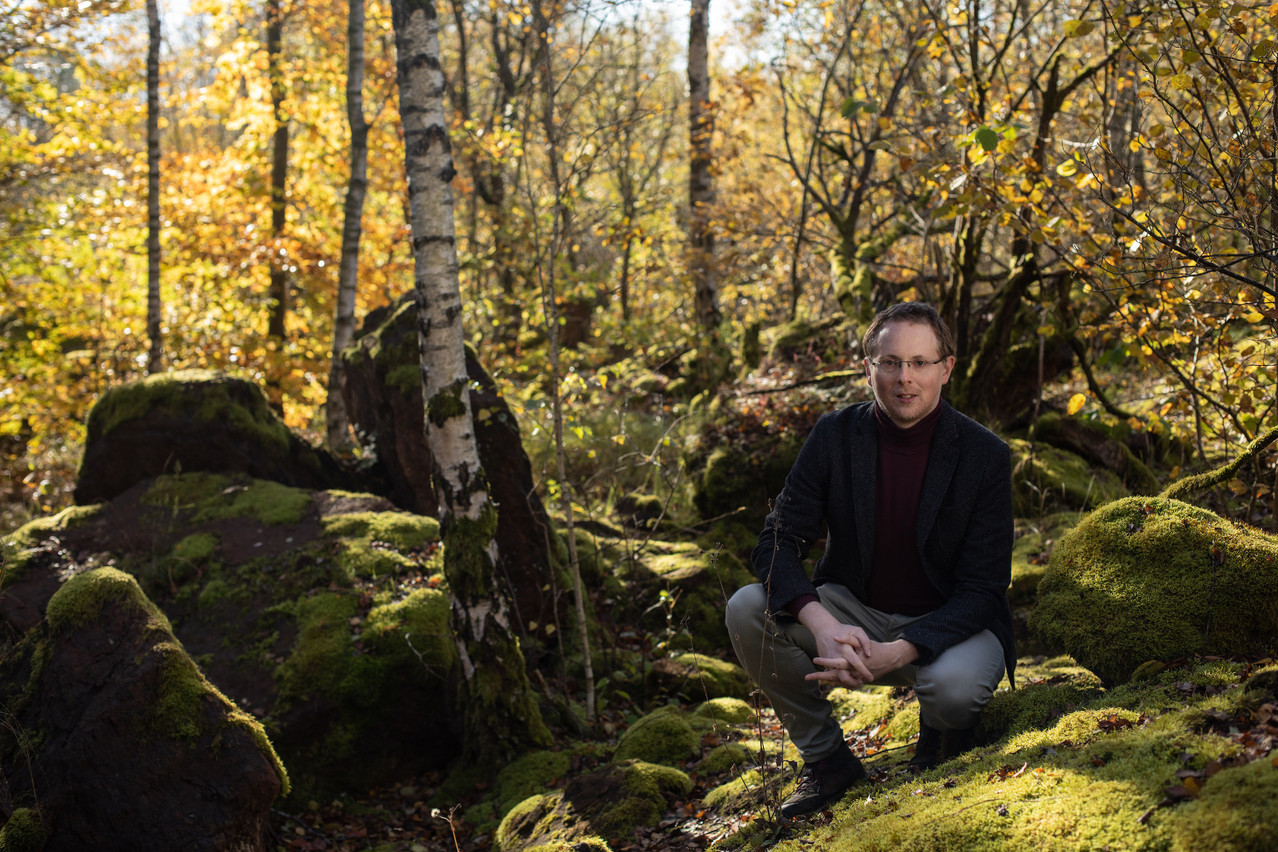The Japanese word “michikusa” refers to the grass and weeds that grow alongside the road; or, figuratively, to something not very noticeable. When combined with the verb “to eat,” the word becomes an idiom (“michikusa o kuu”) that means to lollygag or otherwise waste your time. (Imagine a horse stopping to munch on this grass.)
The word is also what Robert Weis, Zsuzsanna Gaál and Marianne Kayser chose as the name of their publishing house, founded in 2022. “If you stop to look at this grass,” explains Weis of michikusa, “you’re just losing time. And so--a bit ironically--we consider that reading and publishing poetry is losing your time.”
Laughing, he adds: “Quite a few people would say that genuinely… but for us it’s ironic. We love losing our time in a world that is always going faster. We want to slow down.”
Michikusa Publishing released its first title, a collection of poems (in French) by Weis himself, earlier this year. Its second is a collection by Italian poet Tiziano Fratus and is available in two editions: Italian/English and Italian/French.
Niche in a niche in a niche
Michikusa Publishing focuses on nature writing, haiku and ecopoetry. “A niche in a niche in a niche,” says a smiling Weis, pointing out that not many people read poetry at all, let alone any of its particular subgenres. This profile might be expanded in the future, he admits. “It’s a project in evolution.”
Weis foresees a publication rate of about one or two titles per year, given that the publishing house is a non-profit operated by volunteers. He and his colleagues do accept submissions from writer hopefuls (even though the website currently says they do not) but, he warns, they are already booked with projects until 2025.
Language-wise, they are seeking French, English or German texts.
“Everyone can appreciate poetry”
Eco-writing may be a publishing niche but, for Weis, poetry is for all. “Everyone can appreciate poetry,” he says, citing haikus as an example. The Japanese poetic form contains 17 syllables, meaning that haikus are short and often cryptic. Using (just) your intuition, however, you can connect with them, says Weis. “I think most people are damaged during school by analysing classical poems and poets,” he continues, commenting that the point of a haiku is not to give a clear meaning anyway.

“I was fascinated by these tiny trees that look like grown up trees,” says Weis, talking about the Bonsai trees he has cultivated for two decades and, more broadly, about his interest in Japan, zen Buddhism, nature and spirituality. Pictured: “Forest Heart” by Tiziano Fratus. Photo: Michikusa Publishing
Fittingly, Weis’s own writing process takes him far away from classroom analyses. He gets his inspiration from forests and mountains instead: “I go out in nature with my little notebook, and some words just come and I write them down. At home I finish it.”
The Luxembourger, as a palaeontologist for the Luxembourg natural history museum, says he started writing--both travelogues and poetry--during the pandemic when, unable to go anywhere, he began travelling through writing. For him, haikus were an easy way (back) into poetry: “Everyone can basically write a haiku themselves. You don’t need to stick to the strict rules of the syllables, in my opinion. You enjoy a moment, you write down some images in just a couple of words… and you keep that moment (or that perception of that moment).”
Weis is also the author of Retour à Kyôto (Transboréal, 2023), a travel memoir available in French only, but he creative nonfiction in English too.
Forest Heart
The newest Michikusa publication is Forest Heart (simultaneously, in Italian: Cuor di Foresta) by Tiziano Fratus.
Known in Italy as “the tree man,” according to Weis, Fratus meditates in the forest every morning and calls himself a “rural Buddhist.” “He says that nature and trees saved his life when he was 20,” says Weis. “Something happened… and he turned to nature to heal.”
Michikusa books are available in Ernster, Librairie Diederich (Esch) and .
